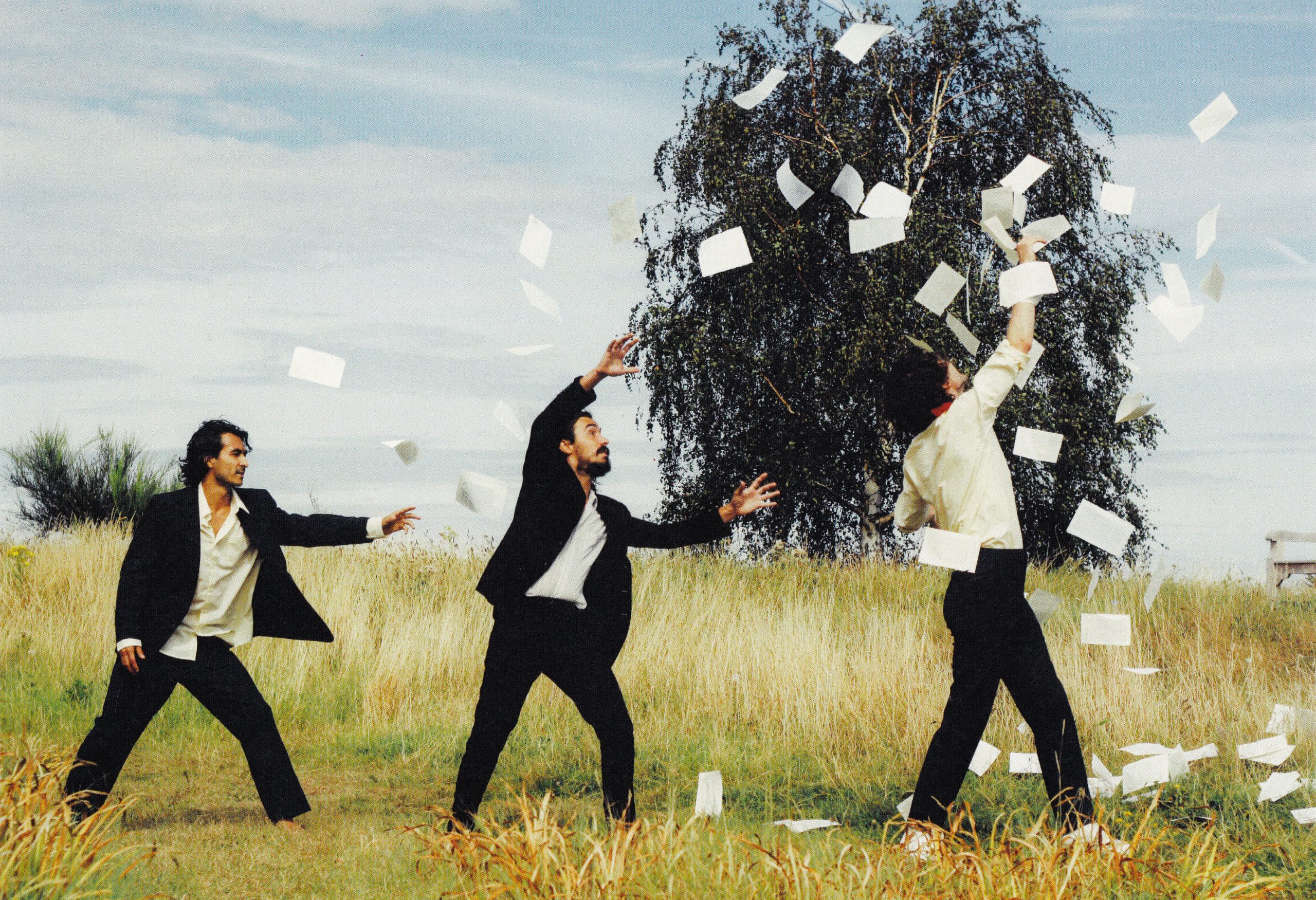
Heartbreak is hardly untrodden ground in popular music. But just when you think you’ve heard it all before, it finds new expression. When Will Taylor, the frontman of three-piece London outfit Flyte, sings “this is really going to hurt” on the opening track of their album of that name, you can believe it – for us, the listeners, as much as for him.
On This is Really Going to Hurt, Flyte’s second album, Taylor picks through the break-up of an eight-year relationship, which might make it sound simply like a half-hour wade through the treacle of somebody else’s wretchedness. But while the blow-by-blow account of each new, difficult feeling is painful to listen to, Flyte are natural storytellers. Their lyrics are poetic but not overwrought. The album tracks a clear and compelling narrative: the trajectory of gradually lifting yourself out of a pit of despair. By the end of the record, the loss is still profound, but there is light coming through the cracks.
That’s not to say that we feel the moments of misery any less acutely. Flyte have an organic sound with plenty of acoustic guitar, strings and heartfelt vocal, which cuts deep; their vintage harmonies and classic songwriting – recalling the quietude of Nick Drake and the warmth of the Beach Boys – lend themselves to the subject matter. After the soft, foreboding in opener “Easy Tiger”, “Losing You” starts with guitar, gentle and lilting, then cycles through evocative images of red dresses, riversides and city lights before Taylor puts the chorus – “I don’t think I’ll get used to losing you” – up the octave, and the song expands. “You stripped me of everything and I hate you, I really do,” he sings, after desperation has kicked in: “Just tell me you want me, I don’t care if it’s true.” It’s enough to move even the most hard-hearted of cynics.
Flyte – whose namesake is Sebastian Flyte of Evelyn Waugh’s Brideshead Revisited – evoke the English pastoral with their lush textures, which are infused with strings, an occasional burst of sunny piano and the earthiness of all-male vocal harmonies. Yet This is Really Going to Hurt was recorded in LA, and a sense of post-break-up freedom comes through in moments of cinematic romanticism. “Under The Skin” uses a repetitive motif underscored by the sound of a ticking clock to create tension, delaying the climax until it eventually explodes, with impassioned vocals and distorted electric guitar: far removed from the green and pleasant lands, it evokes the emotive swells of LCD Soundsystem. Later, the penultimate track, “Mistress America”, is all dusty roads and coming-of-age optimism as it moves through classic folk melodies over cassette-tape crackles. Taylor is perfect in the role of young, vulnerable troubadour.
The latter half of the album takes a more upbeat turn as Taylor gains distance from his past relationship. The lyrics remain reflective and poignant – “I should have made my intentions clear/Before the days turned into years” – but there is a lighter feel overall. In these hazy, indie-folk tracks, there’s solitary reflection, self-blame and a rebound (“she waits in the bed you used to make”), all culminating in “Never Get To Heaven”. With just acoustic guitar and a quiet vocal, it is a reconciliation, an ending, and a look to the future. “I’ll be there when you want me to,” Taylor sings gently, the final line on the album. As well as the feeling that I’ve been hit by a bus, I’m left with one thought: long live the break-up record.



